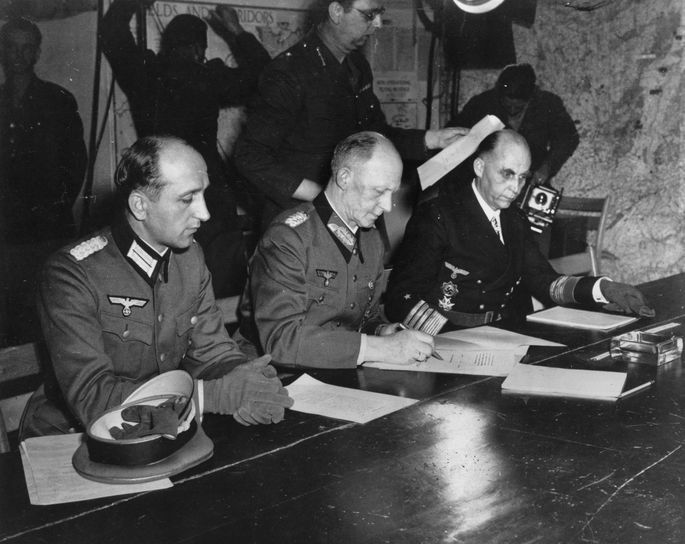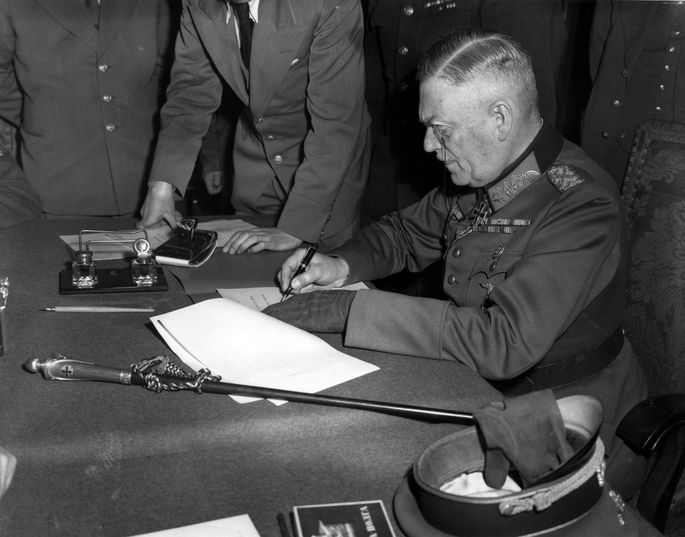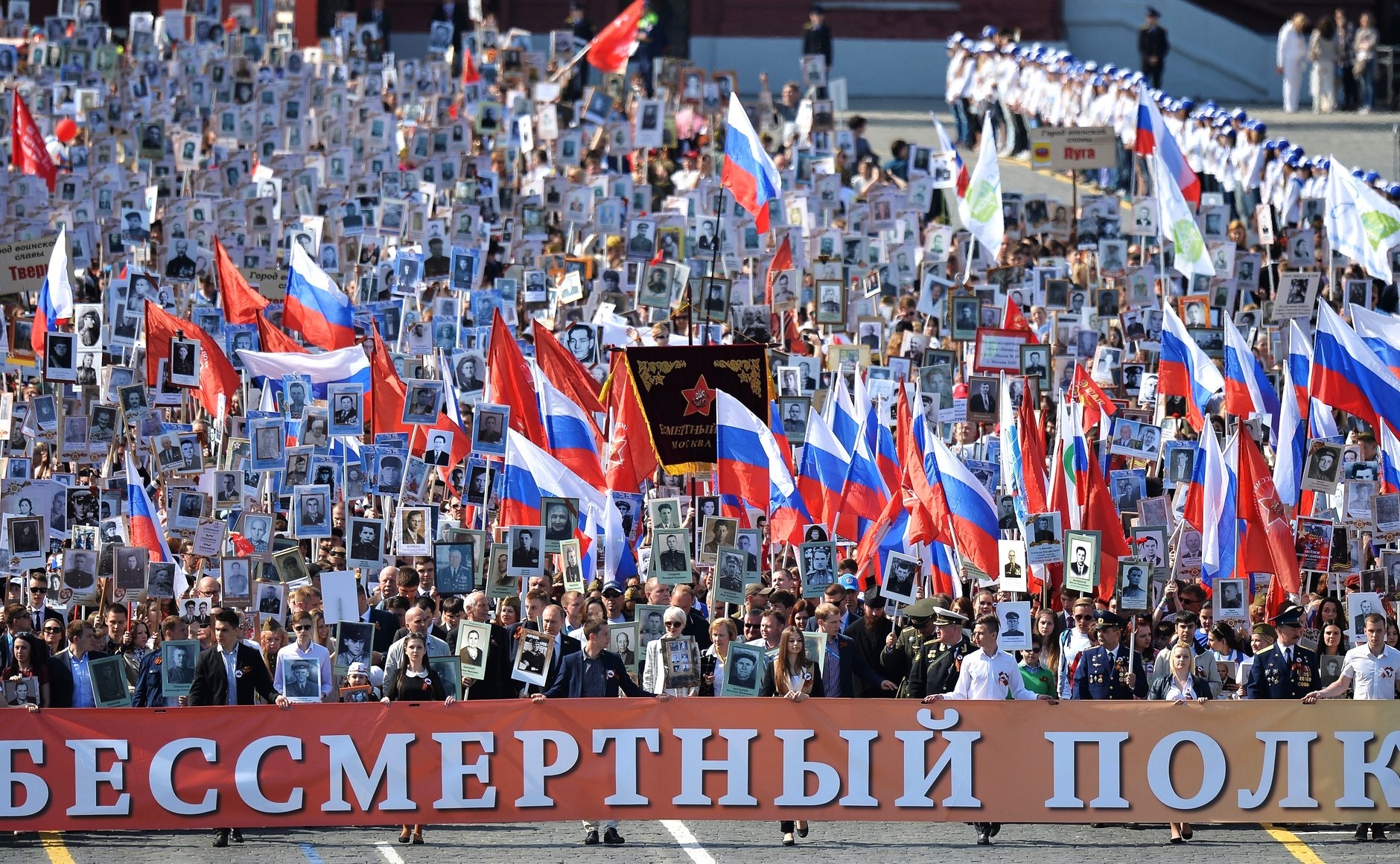8-9 May: How and why do we remember the end of WW2 in Europe?
May 8 marks the anniversary of the German surrendered to Allied forces in 1945, which brought an end to World War II in Europe. Some former Eastern Bloc states, including Russia, mark this anniversary instead on May 9, accounting for the difference in time zones between Eastern and Western Europe. For many, May 9 has become a day of celebration, honoring the triumph over the Axis powers. However, writes Estonian historian David Vseviov, it would be more constructive, and more pertinent, to learn from the past rather than venerate it.
World War II was the largest and deadliest event of the 20th century. Some 70 million people were killed, including about 40 million civilians. These numbers alone show that it was a monstrous crime, one which must never be repeated.
The War broke out on September 1, 1939, and was fought across many continents in almost every part of the world. It lasted for roughly six years, though there is no universal agreement on the date when the War could be said to have ’ended’. Three dates in 1945 that are often suggested are May 8, May 9, and September 2, the latter of which marks the surrender of Japan.

It is entirely understandable that the many victims of the corresponding historical events are commemorated on these dates. But the fact that such events are commemorated raises a didactic question: why do it at all? Or, to put it another way, what do these events signify in the present, and what will they signify in the future?
Such reflection poses further questions around what the exact direction of this commemoration is. That is, whether it essentially confirms or precludes confrontation, and whether it will help former enemies (including former wartime allies) overcome the differences that have separated them for decades.
It must also be remembered that many events in the Second World War (the ’Great Patriotic War’, as it was known in the Soviet Union) are interpreted very differently in Russia than they are in the Western world. Russia's approach to rhetoric around the defeat of the Axis powers can be summed up in the phrase "victory of the war“, while the West’s focus is on the "end of the war“.
The consistent conceptualisation of the events of the Great Patriotic War as an undeniably heroic victory inevitably produces a romanticised view of the past, wherein a constant struggle between “us” and “them” exists. This clichéd, overly simplistic worldview gives rise to a heavily polarised understanding of the world as consisting only of “winners” and “losers”.
Identification is undoubtedly an inherent element of human nature, and we have no problem identifying the winners. To imagine oneself as a winner is easy. However, none of us wants to be regularly identified as a loser. It is difficult to imagine this innate aspect of humanity changing in the future.

If Soviet propaganda is to be believed, the War was aggressively started by an enemy who the noble Soviet Union opposed, and ultimately triumphed over. In contemporary Russia, this narrative is so vehemently defended by many that anyone accused of insulting veterans of the Great Patriotic War could face criminal charges up to and including imprisonment.
In this connection, it should be pointed out that this narrative of heroic victory was not the only basis for the persistence of romantic conceptions of the Soviet past in Russia. For decades, celebrations relating to the date of the Great October Socialist Revolution were more spectacular than the events of May 9.
In the hierarchy of Soviet remembrance days, the October Revolution undeniably ranked first in importance. During the first twenty years after the war, Victory Day was celebrated only once in the Soviet Union – on June 24, 1945.
May 9 was a day off in only a few post-war years. The Presidium of the Supreme Council of the Soviet Union made it a regular working day on December 23, 1947. Instead, January 1 became a day off.
The reason why Stalin ceased to glorify the Soviet victory in this way is a different matter, though it is probable that he was not satisfied with the "results" of the victory he had achieved. Historians now have enough primary documents to confirm that Stalin intended to realize the theory of permanent revolution, an old aspiration of Soviet leaders, in the last years of his reign. He wanted to conquer the whole world, and the outbreak of the Korean War in 1950 provided him with the perfect pretext.
To this end, it was necessary to pour fuel on the fire in the Korean peninsula, escalating the conflict to start World War III. The Soviet dictator had no doubt that this war would end with the destruction of the capitalist world. By describing the US as a "paper tiger", Stalin was urging the Chinese communist leader Mao Zedong to intervene in the conflict, believing it was an opportune moment to decisively defeat capitalism.
The next Victory Parade took place only in 1965 when, under the rule of Leonid Brezhnev, May 9 again became a day off. Since then, the celebration of victory in the Great Patriotic War has become an increasingly grandiose event. In 2012, a movement called the “Immorta Regiment” held the first march as a part of the Victory Day celebrations. By their nature, such marches do not remind us of any other commemorative event.

So, what kind of message does the Second World War, or the “Great Patriotic War”, convey for the present and the future? Ideally, it would be a message that bridges the gap between “us” and “them”. Could this be done by simply focusing on the narrative that privileges the winners?
I think not because, if we could learn from history, studying the horrific experiences contained therein might teach us the most important lesson that the past possibly could teach us: this should never happen again! Therefore, instead of venerating victory in the war, there should be more discussion around the question of how such a destructive conflict ever occurred in the first place.
How, in such a short time, was it possible to forget the victims of the First World War and initiate yet more bloodshed? How was it that two dictators, Hitler and Stalin, found common ground and were able to decide the destiny of entire nations and peoples? Why did the democratic world fail to respond to totalitarian threats in time? And so on.
Commemorative events represent an opportunity to reflect on such questions with the end goal of preventing a terrible conflict like World War II from ever happening again, though they are rarely utilized as such today. Rather than celebrating victory, future commemorative practices could focus instead on the suffering endured by the War’s victims as they hid in basements during bombing raids or took shelter in their trenches while under enemy fire.
Such descriptions provide a universal language that, regardless of colour of uniform or mother tongue, transcends cross-cultural barriers. This alone could unite us in the future, preventing a recurrence of the horrors of war.
It must be understood that war is by no means just a victory and the parades that are subsequently organised in its honor. But, until May 9 is considered a major holiday, one dedicated to contemplative remembrance rather than celebrations of victory, there is no hope that opinions on this matter will change.
It is high time to learn from nations like France and Germany which, though being historical enemies, are exemplars of productive commemoration of historical events and learning from history. An important step in this process would be to remember not only the date marking the end of World War I, but also that marking the end of World War II.